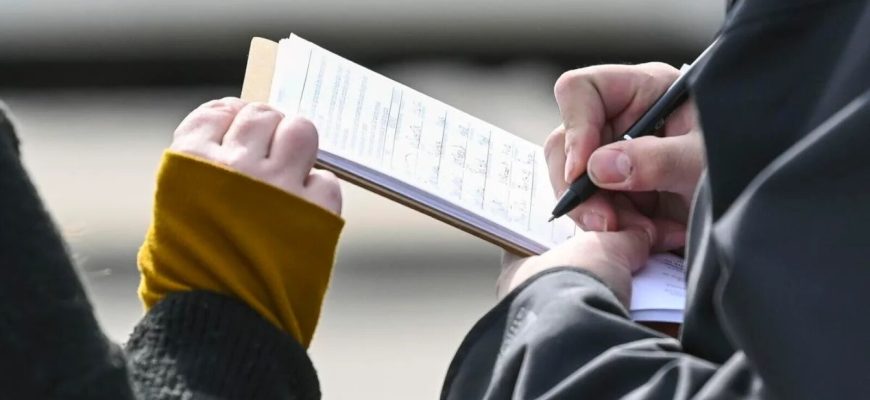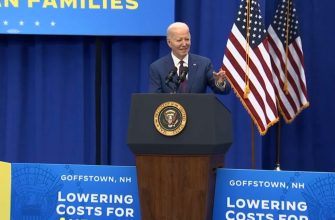The clash over South Dakota’s abortion ban and an attempt to make abortion a voter-approved constitutional right in 2024 have a new battleground: the Minnehaha County Administration Building.
Called the “gold standard” of petition circulation by groups soliciting signatures for ballot measures, the government facility in central Sioux Falls features a steady flow of foot traffic from the parking lot to its main entrance. Circulators often station themselves there with clipboards and requests for support of their political cause.
One of the groups is Dakotans for Health, a grassroots organization seeking enough signatures to put the abortion issue on the 2024 ballot.
If passed, it would enshrine the right to abortion in the South Dakota Constitution and supersede a 2005 state trigger law that took effect when Roe vs. Wade was overturned and made it a Class 6 felony to perform an abortion except to save the life of the mother.
Some of the petition circulators have clashed with volunteers from the anti-abortion Life Defense Fund, whose founders call the proposed amendment “a grave threat to life in our state.” The group aims to thwart petitioners through its “Decline to Sign” campaign.
Verbal skirmishes between the groups, and what some county employees and customers characterize as increasingly aggressive behavior from circulators, led the Minnehaha County Commission to adopt a new policy for petition gathering on May 2. It was based upon the recommendation of county auditor Leah Anderson, who was elected in November and sworn in on March 5.
The new policy would restrict petition circulation to two designated rectangular areas: one about 50 feet from the main entrance to the administration building, in the parking lot off Minnesota Avenue, and the other southeast of the main entrance to the courthouse.
The policy mandated that circulators check in at Anderson’s office prior to conducting political activity “to permit the placement of safety markers and to verify space availability within the designated areas.”
Dakotans for Health responded with a lawsuit in U.S. District Court and was granted a temporary restraining order May 11. The group claims that the new policy “prohibits speech in 99.3% of the outdoor space that was available for First Amendment activity before the new policy was implemented.”

Photo: Stu Whitney / SD News Watch
A hearing was held May 26, and Judge Roberto Lange will consider whether to issue a preliminary injunction to further prevent the new rules from taking effect while the judicial process unfolds. On May 30, Lange told the parties that he was extending the temporary restraining order for 14 days, keeping the new policy in limbo during deliberation.
Since the courthouse area is seldom used to gather signatures, debate has focused on the yellow-striped rectangular box in the parking lot.
Dakotans for Health founder Rick Weiland said its location will force circulators to shout at potential signers to go out of their way and potentially walk through parking lot traffic to engage in conversation.
“It’s like an invisible cage,” said Weiland, whose group is also collecting signatures for an initiated measure on the 2024 ballot to repeal the state grocery tax. “No one’s going to come through there.”
Under the previous policy, circulators were allowed to station themselves on the sidewalk near the entrance to the administration building if they conducted themselves in a “polite, courteous and professional manner” and did not “obstruct individuals as they enter and exit the building.”
Problems started occurring over the past few months, according to the county’s response to the lawsuit, necessitating a policy change “in order to assure that (First Amendment activity) is not overly disruptive and that employees are not subjected to unwelcome, hostile, or harassing speech.”
Just past noon on May 26, while the parties pleaded their cases in court, 41-year-old Kerry Ruscitti of Sioux Falls stood outside the main doors of the Minnehaha County Administration Building donning a pink baseball cap, black backpack and a T-shirt that read, “Let the People Decide.”
She carried a clipboard with petitions for the abortion constitutional amendment, which would prevent the state from regulating abortions during the first trimester. During the second trimester, the state could regulate “the abortion decision and its effectuation only in ways that are reasonably related to the physical health of the pregnant woman.” After the end of the second trimester, abortion could be regulated or prohibited except to preserve “the life or health” of the mother.
Ruscitti, who typically positions herself at the Falls Park Farmers Market or other downtown locations, is a volunteer for Dakotans for Health, which also uses a handful of paid circulators for its campaigns. They get paid an hourly rate, with bonuses based on performance compared with minimum gathering requirements. It’s illegal to pay by signature in South Dakota.

Photo: Stu Whitney /SD News Watch
Ruscitti said she hasn’t had many confrontations with opposition protesters during her time volunteering, but she said conversations with people sometimes get heated.
“It’s such a touchy subject on both sides,” she said of the abortion debate. “Nobody has really yelled at me. They just get very passionate about reasons why they think (the amendment) shouldn’t happen.”
In a short time, Ruscitti collected a handful of signatures near the building entrance.
In one case she explained to a woman that her signature doesn’t necessarily amount to supporting abortion but merely helps put the measure on the ballot for voters to decide. A few minutes later, a man asked for her to wait until he conducted his business inside and then came out and offered his signature after a brief conversation.
The scene offered a reminder of why the administration building – serving a county with nearly 200,000 residents, 22% of the state’s population – has been a petition-gathering hub for decades.
People are constantly coming and going from tasks such as renewing license plates, getting a marriage license or registering a deed. Most are county residents with an established address, which means a high percentage of valid signatures, said Adam Weiland, Rick’s son, who oversees petition drives for Dakotans for Health.
The group collected about 10,000 signatures over 12 months at the Minnehaha County building for the Medicaid expansion constitutional amendment that made the 2022 ballot and was approved by voters, Adam Weiland said. He estimated that more than 20% of the group’s overall signature collection comes from the county building, without the duplicate traffic seen at other sites.
“After working Medicaid expansion for 12 straight months, we still hadn’t exhausted it,” he said. “We were still getting fresh signatures down there. It’s just this diverse stream of traffic with a lot of registered voters and a good universe of individuals to be collecting signatures from.”
The group needs to collect a minimum of 35,017 signatures by May 7, 2024, to place the abortion constitutional amendment on the 2024 ballot. The goal is to submit 60,000 or more to ensure that ballot access isn’t foiled by invalidated signatures or other technicalities.
— This article was produced by South Dakota News Watch, a non-profit journalism organization located online at sdnewswatch.org.








